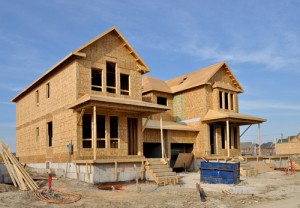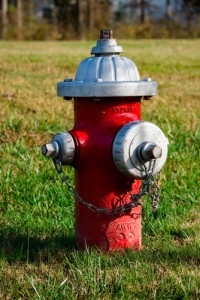I get this call at least once a week. Either a current client or a prospective client is thinking about buying a new home or looking to switch their home insurance. Without telling me anything about the home they ask me, “Josh, how much will my Cary, North Carolina home insurance cost?” At this point I have to respond with, “I don’t know.” This isn’t the response they were looking for so they ask “Why can’t you tell me how much will my Cary, North Carolina home insurance cost?”
At this point the wheels in my brain starting turning and thinking about all of the different factors that go into determining how much your insurance will cost. I’ve put together a fairly comprehensive list of the factors, and of course there are some that aren’t part of this list, but this will give you a great idea without becoming an insurance nerd like me.

Credit & Insurance Score
One of the main driving factors between not only determining if an insurance company is able to write your home insurance, but how much it will cost is your credit score and your insurance score. I could write 2000 plus words on this subject, but let’s take a 20,000 foot view of this. Insurance companies, right or wrong, have decided to come up with something called an insurance score. This insurance score is comprised of many different factors such as your credit score, number of claims filed, age, marital status, having multiple policies with them, etc. This is one of the main reasons why your home insurance may cost more, or less, than your next door neighbor that has the same exact home as you.
One way to control your insurance score and keep it the same or lower is to make sure you don’t open up store credit cards. Often times you are enticed by opening up a Banana Republic, Best Buy, or Home Depot credit card to save 10% on your first purchase. This may save you $40, $50 at that time, but when your insurance renews your insurance score could go up and negate the $40 or $50 savings when you opened up that store credit card.
Other ways to lower your insurance score is having multiple policies with the same company and having no claims.
Year Built
The year that your home was built has a huge, huge impact on how much your home insurance will cost. When you have a brand new house your insurance company will give you a New Home Discount. This discount can range from 20-36% with the average discount being 30%. Now this discount is good for the first 10 years that the home is in existence and each year that the home ages you lose a part of that discount.
Let’s take look at my personal home insurance situation. My wife and I bought a new house in August 2015 and this means we get a New Home Discount of 30%. However, next year when my home insurance renews I will lose 3% of that discount which means my home insurance will go up next year. So even if my home insurance company decided to keep all the other factors exactly the same from the previous year my home insurance will be 3% more because I lost 3% of my New Home Discount.
Claims History
When I first started in the insurance industry in 2008 home insurance didn’t go up because you filed a home claim. What you had to be concerned about was filing too many claims in a three or five year period. If that happened, then your home insurance could be canceled. Fast forward to 2015, almost 2016, and that is not the case. Now when you file a home claim your home insurance will go up.
Think of this in the same way that your auto insurance will go up because you had an at fault accident or received a ticket. Whether this is a fair practice or not will be discussed at another time, but this is another huge factor when determining how much your home insurance will cost.

Construction Type
The two most common types of construction classification that are used in North Carolina are Frame and Masonry Veneer. (I hope I didn’t just lose you at this point.) What the insurance company is asking is what type of material is used on the exterior of your home. For Frame this will be aluminum, vinyl, wood, masonite, and sometimes cement fiber/hardiplank siding. For Masonry Veneer this is when the home is covered by at least 2/3 (see learning fractions in middle school does coming in handy) by either brick or cement fiber/hardiplank siding.
Having your home classified as Masonry Veneer will yield a lower home premium which is something to smile about. So when you are looking to purchase a new home consider a brick or cement fiber/hardiplank exterior home.
Location
Insurance companies have become so sophisticated in the pricing models that they use that not only does the county you live in matter, not only does the zip code you live in matter, but the zip code plus those four extra numbers that no one ever uses, except insurance companies, matter. So a house that is 5 minutes apart on foot can have a different pricing model because of the 4 extra numbers used for their zip code.
In the area surrounding our agency the majority of your clients live in Wake County, Durham County, and Johnston County. People are often surprised to hear that Durham and Johnston County are more expensive for home insurance than Wake County. In general home prices are lower in Durham and Johnston County which is what attracts a lot of buyers to those areas, but it usually comes with a higher cost of home insurance, then in Wake County.
Age of Updates
Some insurance companies will give you a discount if you have a brand new roof or other updates to the home such as the heating unit, wiring, and plumbing. The only discounts that the insurance companies that the Lipstone Insurance Group works with pertain to the age of the roof and not all of them offer this type of discount. You should always tell us, or your current insurance company, if you’ve replaced your roof to see if you are eligible for a discount.
Here is a general guide as to the four main items that need to be updated and what age range they need to be in. The roof needs to be new within the last 15 to 25 years, the heating unit needs to be new within the last 30 years, the wiring needs to be up to current code with a circuit breaker and no aluminum wiring or knob and tube wiring, and the plumbing needs to be copper or PVC and not polybutylene piping. There are some nuances for each of these four items that you should talk to either the Lipstone Insurance Group or another independent insurance agency about.

Public Protection Class
All homes are classified on a scale of 1 to 10 for their Public Protection Class. These ratings are determined by the fire station that serves your home. Fire stations and fire departments are rated on a scale of 1 to 10 based on factors such as water distribution, fire department equipment, manpower, and fire alarm facilities. The lower the classification the less your home insurance will cost. For example, Cary, North Carolina recently was reclassified from a 3 to a 1 which means those living in Cary paying the least amount of money for their home insurance with respects to the PPC for their home.
Another very important factor regarding this is the distance of your home to a fire hydrant. This actually happened to a current client of the Lipstone Insurance Group this past week. They are purchasing a new home in Holly Springs, North Carolina and their home is classified as a 4/9 Public Protection Class. If their home had a fire hydrant within 1000 feet or less, then they would be classified as a 4. Unfortunately they did not which meant they are classified as a 9. Their home insurance is now $300 more per year because they do not have a fire hydrant within 1000 feet of their home.
Deductible
The higher your deductible the lower your premium will be. A lot of insurance companies are now going to a minimum deductible of $1000 which is what the Lipstone Insurance Group recommends as your minimum deductible. You want to take into consideration the savings of going with a higher deductible.
A relatively new offering that North Carolina insurance companies have implemented is the split deductible option. They now offer a specific deductible for any wind or hail claims and then another deductible for all other claims. It will generally appear on your North Carolina home insurance policy as a 1% wind/hail and $1000 All Other Perils deductible. The wind and hail deductible can vary from a 1%, 2%, or 5% to $1000, $2000, $2500, or more. Often times this is how insurance companies that are new to the state of North Carolina will be competitive. So keep your eye out for this and it should be something that your independent insurance agent should point out to you.
Dwelling Limit
As part of the insurance companies sophisticated pricing models they will often have lower rates for more expensive homes. The higher the dwelling limit on your North Carolina home insurance policy, often the lower the pricing model, but that does not necessarily mean that a $300,000 home will be less to insure than a $700,000 home.
Type of Policy
There are many different kinds of home insurance offered in North Carolina. The most common ones are an HO-3 policy and an HE-7 policy. Other types of policies are called a DP-1, DP-3, and HO-5. The HE-7 policy provides the most comprehensive coverage of the ones I’ve listed here and what we recommend to our clients. You can add an extra coverage to an HE-7 policy to give you even more coverage called an HE-21. (Now I really hope I didn’t lose you by now, but at almost 1800 words I think you are committed to finishing this.)

Marital Status
Some North Carolina insurance companies will give you a discount if you are married. So if you and your significant other are thinking of buying a house, then think about tying the knot. Taxes aren’t the only savings you’ll get once you are married.
Mortgage versus No Mortgage
There are a couple North Carolina insurance companies that will give you a discount if you do not have a mortgage on your home. Make sure that if you pay off your mortgage that you notify your independent insurance agent to update your policy and see if you qualify for this discount.
Certain Endorsements
One of the North Carolina insurance companies that the Lipstone Insurance Group works with will lower your insurance score if you add certain endorsements to your home insurance policy. This was counterintuitive to me until I saw it work myself. You should ask your independent insurance agent if there are any endorsements that if you add them to your policy could result in a lower insurance score which could make the cost of your home insurance less.
How much will my Cary, North Carolina home insurance cost?
That my friend is the $64,000 question that once I have the information above and information about you I can answer.
What I can provide is some of our recent clients home insurance cost:
- Built in 1998, no claims, masonry veneer construction, located in Cary, North Carolina, PPC-1, $2500 deductible, $473,000 dwelling limit, HE-7/HE-21 policy, married, mortgage. Premium: $991.00.
- Built in 1991, no claims, frame construction, located in Cary, North Carolina, heating unit replaced in 2005 and roof replaced in 2002, PPC-1, $1000 deductible, $244,000 dwelling limit, single, mortgage. Premium: $657.00.
- Built in 1994, no claims, frame construction, located in Cary, North Carolina, plumbing replaced in 2013 and roof replaced in 2013, PPC-1, $2500 deductible, $415,500 dwelling limit, married, mortgage. Premium: $1116.00.
- Built in 2015, no claims, frame construction, located in Apex, North Carolina, PPC-3, $2500 deductible, $425,000 dwelling limit, married, mortgage. Premium: $851.00.
- Built in 2005, no claims, masonry veneer construction, located in Durham, North Carolina, PPC-2, $1000 deductible, $503,000 dwelling limit, HE-7/HE-21 policy, married, no mortgage. Premium: $1659.00.
- Built in 1986, no claims, frame construction, located in Durham, North Carolina, PPC-2, $1000 deductible, $100,000 dwelling limit, HE-7/HE-21 policy, single, mortgage. Premium: $367.00.
This isn’t a full list of all the different factors that will let me answer your question, “How much my Cary, North Carolina home insurance will cost?”, but it’s a good starting place.
This is why when I get that phone call from you I can’t come up with a premium off the top off my head.
This is why I need to ask so many questions and that I take the time to find out all that I can.
I do this so that I can find you the coverage you need, the experience you deserve, and all at a fair price.
So the next time you pull up Redfin, Trulia, or Zillow on your iPhone to find your next home keep these things in mind.
Please feel free to call, 919-463-5300, or email me, josh@lipstoneinsurance.com if you have any questions or if I can help you with your Cary, North Carolina home insurance.
